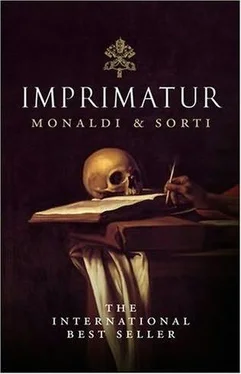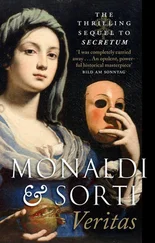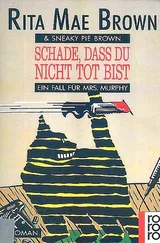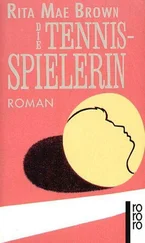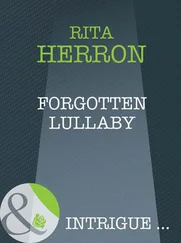Rita Monaldi - Imprimatur
Здесь есть возможность читать онлайн «Rita Monaldi - Imprimatur» весь текст электронной книги совершенно бесплатно (целиком полную версию без сокращений). В некоторых случаях можно слушать аудио, скачать через торрент в формате fb2 и присутствует краткое содержание. Жанр: Исторический детектив, на английском языке. Описание произведения, (предисловие) а так же отзывы посетителей доступны на портале библиотеки ЛибКат.
- Название:Imprimatur
- Автор:
- Жанр:
- Год:неизвестен
- ISBN:нет данных
- Рейтинг книги:5 / 5. Голосов: 1
-
Избранное:Добавить в избранное
- Отзывы:
-
Ваша оценка:
- 100
- 1
- 2
- 3
- 4
- 5
Imprimatur: краткое содержание, описание и аннотация
Предлагаем к чтению аннотацию, описание, краткое содержание или предисловие (зависит от того, что написал сам автор книги «Imprimatur»). Если вы не нашли необходимую информацию о книге — напишите в комментариях, мы постараемся отыскать её.
Imprimatur — читать онлайн бесплатно полную книгу (весь текст) целиком
Ниже представлен текст книги, разбитый по страницам. Система сохранения места последней прочитанной страницы, позволяет с удобством читать онлайн бесплатно книгу «Imprimatur», без необходимости каждый раз заново искать на чём Вы остановились. Поставьте закладку, и сможете в любой момент перейти на страницу, на которой закончили чтение.
Интервал:
Закладка:
Now I was certain. Once he had learned of the victory at Vienna, the Pontiff had felt better and leeching had become pointless. The Pope was safe and sound. Dulcibeni had failed.
I remarked that I was not alone in knowing this. A little way off in the crowd, I recognised, without myself being seen, the agitated and suspicious visage of Abbot Melani.
I returned to the monastery on my own, lost in the crush of people swarming homeward in disorder, without catching sight of Abbot Melani or making any attempt to retrace him. All around me, exuberant comments abounded: on the ceremony, the health of the Pope, and his glorious work for Christendom. Quite by chance, I found myself in the midst of a group of Capuchin friars, who wended their way cheerfully, waving torches and thus perpetuating the rejoicings of the Te Deum. From their conversation I gleaned a number of curious details (the truth of which I was to ascertain during the months that followed) of what had taken place during the siege of Vienna. The fathers spoke of reports received from Marco d’Aviano, the Capuchin friar who had so valiantly dedicated himself to the League against the Turks. At the end of the siege-I heard them tell this with their tongues loosened by emotion-the Polish king had disobeyed the orders of Emperor Leopold and had made his solemn entry into Vienna, acclaimed as victor by all the Viennese. The Emperor, as he himself had confessed to Marco d’Aviano, envied him not for his triumph, but for the love his subjects bore him; all Vienna had seen Leopold abandon the capital to its fate, escaping like a thief, and now they were enthusiastically cheering a foreign king who had just risked his life, that of his people, and even that of his firstborn son, to save it from the Turks. Obviously, the Habsburg monarch would now exact payment from Sobieski for what he had done. When they did at last meet, the Emperor was peevish and icy. "I am petrified," Sobieski confessed to his people.
"But then the Lord has so arranged matters that all will be for the best," concluded one of the Capuchins, conciliatingly.
"Yes, indeed, if God so wills it," echoed one of his brothers. "In the end, all is for the best."
Those wise words still echoed in my head when, on the next day, I was informed by Cristofano that within a few days we would all be freed from the restrictions of the quarantine. Taking advantage of the festive spirit, the doctor had succeeded in persuading the authorities that there was no longer the slightest danger of any infection. The only person still in need of assistance was Pompeo Dulcibeni, whose condition was explained to the guards by an accidental fall down the stairs of the Donzello. As for Dulcibeni himself, he was, alas, a candidate for perpetual immobility. Cristofano would be able to help him for a few more days; then he too would be returning to the Grand Duchy of Tuscany. Who would take care, I thought to myself with a bitter smile, of the man who had attempted to assassinate the Pope?
Events of the Year 1688
Five years had passed since the terrible adventure at the Donzello. The inn had not re-opened. Pellegrino had been taken away by his wife, to stay with relatives, I presume.
Cloridia, Pompeo Dulcibeni and I dwelled in a modest farmhouse outside the city walls, beyond the San Pancrazio gate, where I am even now consigning these words to paper. The days and the seasons were, then as now, measured only by the harvesting of our little field and the care of the few farmyard animals purchased with Dulcibeni's savings. I was already familiar with every hardship of the fields; I had learned to grub in the soil with my bare hands, to question the wind and the sky, to barter my own fruit for that of others' toil, to bargain and to detect cheating. I had learned to leaf through the pages of books in the evening with a peasant's swollen, dirty hands.
Cloridia and I lived as man and wife. No one could ever have blamed us for that: in our remote area, we never so much as saw a priest, even for the Easter blessing.
Since he had at length become resigned to the loss of his legs, Pompeo had grown even more taciturn and irritable. He no longer resorted to inhaling ground mamacoca leaves, the drug from Peru which he had obtained in Holland. Thanks to this, he had also ceased to be seized by those states of gloomy exaltation which had enabled him to sustain his wild excursions into the galleries under the Donzello.
He still could not understand why we had taken him in and provided him with shelter and assistance. At first, he suspected that we were motivated by the not inconsiderable savings with which he could endow us. He never learned about Cloridia. Nor did she ever wish to reveal to him that she was his daughter. In her heart, she had never pardoned him for permitting the sale of her mother.
When enough time had passed to protect her from the anguish of memories, Cloridia at last recounted to me the vicissitudes which she had suffered after being torn from her father. Huygens had persuaded the child that he had bought her from Dulcibeni. He had kept her hidden and then, when he tired of her, he had sold her to other wealthy Italian merchants before returning to Feroni in Tuscany.
For long years, she had travelled in the retinue of these merchants, and then of others, and yet others, more than once being bought and resold. From that to the ancient and shameful art, the step had been short; but with the money she had secretly and with great efforts set aside, she had bought back her freedom. Opulent and liberal, Amsterdam was the ideal city for that vile trafficking in bodies. At last, however, she was overcome by the urge to retrace her father and to ask him to explain why he had abandoned her, and this, aided by the science of numbers and the ardent rod, had brought her to the door of the Donzello.
Despite all that she had suffered and the sad memories which often robbed her of sleep, Cloridia assisted Dulcibeni with constancy and devotion. He, for his part, ceased to treat her with disdain. He never asked her any questions about her past, thus sparing her the embarrassment of having to lie.
Pompeo soon asked me to go and recover the trunks full of books which he had left in Naples. He presented them to me, announcing that, with time, I would come more and more to appreciate their value. Thanks to those books, and the discussions which arose from reading them, little by little, Dulcibeni's tongue loosened. In time, he switched from observations to memories, and from these to teachings. He taught, however, on the basis not only of doctrine but of experience; one who has traded for years throughout Europe, and in the service of a powerful house like that of the Odescalchi, will have much to tell. There remained between us, however, hanging in the air, that unrevealed mystery: why had Dulcibeni made an attempt on the life of the Pope?
One day, he confided, he would unveil the secret. I knew, however, that given his proud, stubborn nature, to ask him for it would, have been utterly useless. I must wait.
In the autumn of 1688, the gazettes bore news of the gravest and most painful occurrences. The heretical prince William of Orange had, with his fleet, crossed the English Channel and disembarked at a place called Torbay. His army advanced and met with almost no resistance. Within a matter of days, he had usurped the English throne, deposing the Catholic King James II of the House of Stuart, guilty of having only two months previously sired from his second wife the long-desired male heir to the throne, who would have robbed the Prince of Orange of all hope of ever becoming King of England. With William's incursion, England fell into the hands of the Protestant heretics and was thus forever lost to Rome.
When I informed Dulcibeni of the dramatic news, Pompeo made no comment of any kind. He was seated in the garden, stroking a kitten which lay in his lap. He seemed tranquil. Yet, suddenly I saw him bite his lip and chase the little creature away, with trembling fist, banging hard on the nearby table.
Читать дальшеИнтервал:
Закладка:
Похожие книги на «Imprimatur»
Представляем Вашему вниманию похожие книги на «Imprimatur» списком для выбора. Мы отобрали схожую по названию и смыслу литературу в надежде предоставить читателям больше вариантов отыскать новые, интересные, ещё непрочитанные произведения.
Обсуждение, отзывы о книге «Imprimatur» и просто собственные мнения читателей. Оставьте ваши комментарии, напишите, что Вы думаете о произведении, его смысле или главных героях. Укажите что конкретно понравилось, а что нет, и почему Вы так считаете.
